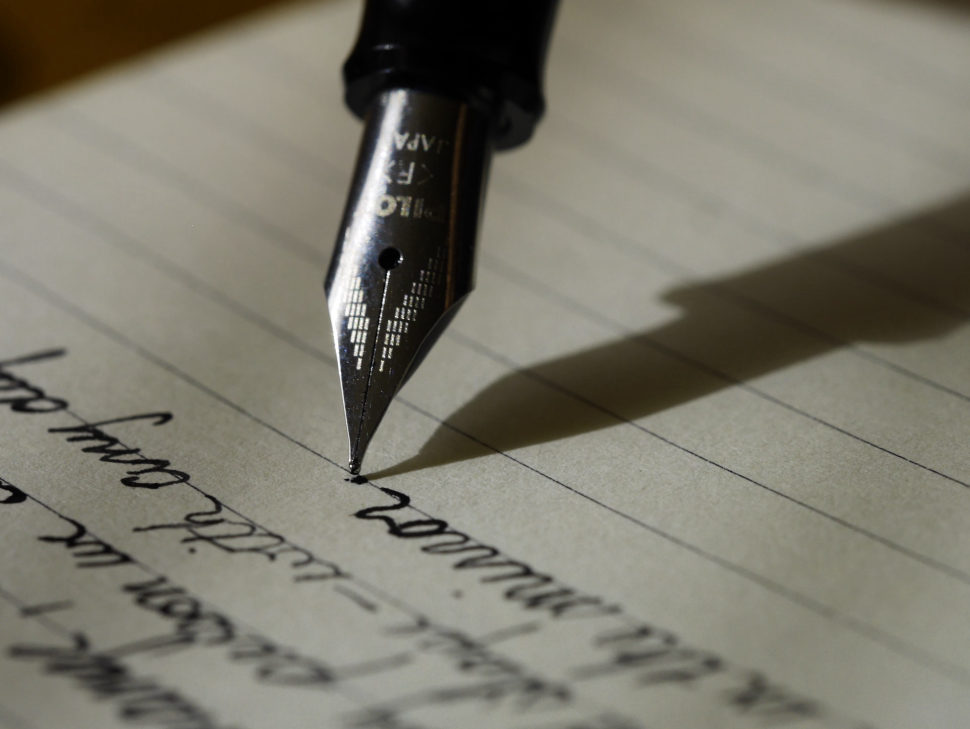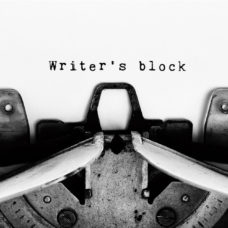Main Writing Process Takeaways:
- Writing process refers to a series of steps that a writer must follow to complete a piece of writing.
- Having a writing process is essential to produce a wide range of content.
- Breaking down your text into different stages could ultimately improve content quality.
- A writing process or method includes the following stages: planning, drafting, sharing, evaluating, revising, editing, and publishing.
- The prewriting stage is the most critical stage of the writing process.
We all follow a writing process when creating an article or any written content. In most cases, this process becomes a routine that comes naturally rather than a step-by-step guide.
However, following a step-by-step writing process can come in handy, especially when dealing with challenging pieces. In this post, we will discuss the seven-stage writing method that you can use for writing high quality content.
What is the Writing Process?
Writing process refers to a series of steps that you must follow in order for you to complete a piece of writing. Writers may have different writing methods, but the writing stages are essentially the same. These stages break writing into manageable pieces from planning, drafting, and sharing to revising, editing, and publishing. That way, the task seems less laborious.
The primary strength of the writing process is its usefulness in producing a wide range of content. Whether you’re an academic writer, blogger, or screenwriter, it helps you write better, easier, and faster.
Read More: The Best Copywriting Courses For Beginners
Why is the Writing Process Important?

Having a writing process will help you break your writing tasks into manageable parts, making the work less intimidating. As a result, you’re less likely to experience writer’s block. It could also aid in reducing the anxiety and stress that comes with writing. Also, breaking down your writing work into different stages could ultimately improve content quality.
It will allow you to focus on your piece. That way, you can tailor your content to address the specific needs of your target audience.
We could think of writing in terms of merely producing materials for readers to enjoy. But there’s more to the story.
With the right approach, writers usually undergo three stages — thinking, learning, and discovery — to produce excellent pieces. And such authentic writing usually makes lifelong learners and versatile writers.
Writers must always follow a writing process to be efficient and more productive.
It does not matter whether you are writing a thesis, academic report, research paper, essay, or blog content. The more organize your ideas are when you present them in text, the more you will be able to connect with your readers.
What are the 7 Steps of the Writing Process?

The EEF’s “Improving Literacy in Key Stage 2” guidance report broke down the writing process into seven stages. This includes the planning, drafting, sharing, evaluating, revising, editing, and publishing stages. As writers become adept in these stages, they can quickly move back and forth, revising their text along the way. In other words, writing is not a linear process.
1. Planning or Prewriting
The planning or prewriting stage involves brainstorming, which takes into account your writing purpose and goal. It’s also the stage to connect your ideas using graphic organizers. The prewriting stage is when you ask the following questions:
- What will I write?
- What is the intended purpose of the writing?
- Who is the audience for your writing?
You need to do intent research to better understand what your target readers need. For instance, if you are writing for the web, you can take advantage of Google-Related Questions to know what the people are searching for online in relation to your topic.
Answering these questions ensures that you start your writing with the end in mind. Furthermore, you’ll be able to see your writing project through your audience’s eyes.
2. Create Your First Draft
Before your content is ready for publishing, you must have created a couple of drafts.
Thanks to the drafting process, you can write freely from the beginning to the end. What’s more, it provides a way to quickly draw from your outline or list of main plot points — depending on your writing process.
You could also use these stages to establish word count goals to get a rough idea of the project duration. This is especially important for creative writers such as novelists.
3. Share Your First Draft
After completing the first draft, it’s time to take a break and share the text with others.
While it may sound a bit scary at first, the feedback will help you evaluate elements of your writing. These include the composition, structure, and overall effectiveness.
Consider sharing your first draft in the following places:
- Your email list — if you have one
- Online writing groups and forums
- Social media groups for writers
- Social media group for a specific genre
In the end, you’ll know whether your first draft fulfills the intended purpose and appeal to your audience. The feedback also tells you if your writing is clear, enjoyable, and easy to read.
4. Evaluate Your Draft
This writing process involves doing a full evaluation of your first draft.
At this stage, you have to take the feedback that you’ve received into account. It’s also an excellent opportunity to address possible mistakes with grammar or mechanics.
For fiction writers, this writing stage allows you to ask whether the readers like your main character. Likewise, non-fiction writers have to ask if their content addresses their audience’s questions.
After evaluating your work, you can move to the revision stage of writing.
5. Revising Your Draft
Revision involves making changes to your work based on the feedback you received and thorough evaluation. This writing process is especially useful for fiction writers.
Along with correcting structural problems in your story, it also allows you to find loose ends and tie them up. You can also add or remove content to improve your write-up’s flow and usefulness.
When you’re done revising, you’ll have a new draft that takes you closer to your writing goal.
At this point, your newest revision becomes your latest draft. After that, you may opt to edit your own work using a content writing and editing tool like INK or hire a professional editor.
6. Editing your Content
The editing aspect of the writing process is about eliminating possible errors in your revised content. These include elements that can affect your text’s accuracy, clarity, and readability.
The editing process also addresses misquoted content, factual errors, awkward phrasing, and unnecessary repetition. Not only does good editing make your work easier, but it also makes the text more enjoyable.
Specialized writing tools such as INK could prove useful for editing web content. But it’s best to avoid self-editing for books. Consider hiring a professional editor for novels and non-fiction books.
7. Publishing your Content
The last stage of the writing process involves sharing your text with your audience.
There are various ways to publish your content, depending on the content type. For example, you can share your book using self-publishing platforms such as Kindle Direct Publishing (KDP) and CreateSpace.
Whatever the writing may be, the writing processes outlined above will help you create an excellent piece.
What is the Most Important Step in the Writing Process?
Educators have not reached a consensus on the most important writing process. Some would argue that the prewriting stage is the most critical for completing a piece of writing.
After all, brainstorming is required to create an idea that’ll eventually become the content. Besides, writers can use the prewriting stage to avoid or overcome writer’s block.
Meanwhile, educators at the University of North Carolina at Chapel Hill believe that the revision stage is the most critical. It’s when a piece of writing undergoes the most changes.
It could entail increasing the word count to supply as much information as possible. You could also rearrange some aspect of the manuscript to improve the content’s flow, pacing, and sequence.

















One has to be careful with the brokers on the internet now. Last year I was scammed in the binary trade option by a broker I met on Instagram. I invested $14000 which I lost, I couldn’t make a withdrawal and I slowly lost access to my trade account for 3 months I was frustrated and depressed. After a few months, I met Mrs Lisa who is A recovery expert that works in affiliation with the Federal Bureau of Investigation (FBI) and other law firm. she worked me through the process of getting my money back and all the extra bonus which I got during my trading. he can be of help to anyone who has a similar situation. You can contact him via her mail: Email Lisa.Eric @ proton.me WhatsApp +84 94 767 1524
Hello guys I wan to say this to whom it may concern. Investing in crypto was my husband ideal. I trade with sim ceypto platform not knowing they where sc!m and this made me lose almost all I had. Am only happy because I found help after reporting to Mrs Lisa Eric and she helped me recover all I lost to these fake crypto platform. My advice is that everyone need to be careful of the platform you deal with. If you have falling victim of these fake platform do not hesitate to file a complaint to Lisa via he mail ( Lisa.Eric @ proton.me ) she helped me and I believe she can help you too. Stay safe guys. You can visit WhatsApp +84 94 767 1524.